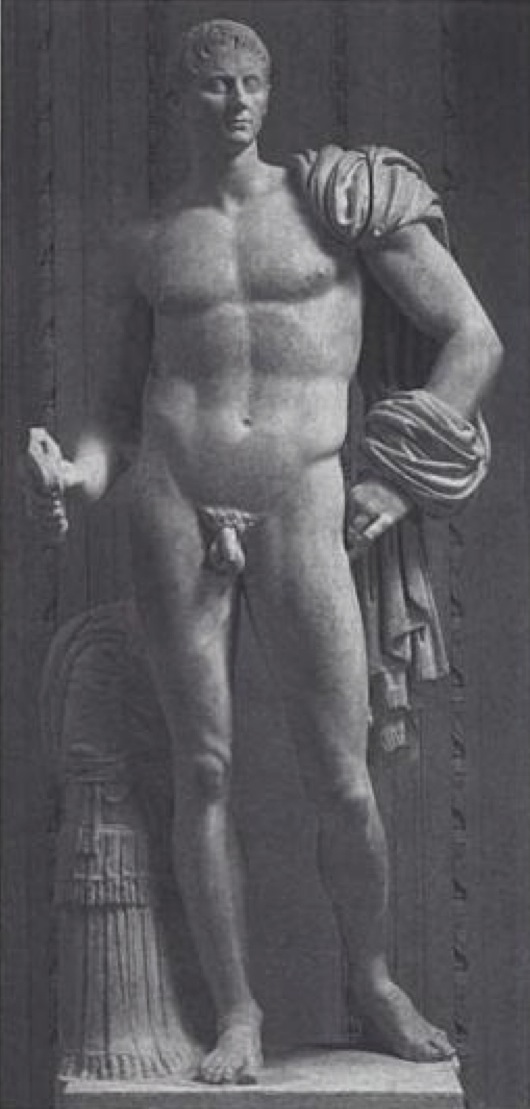Livia, in the opinion of the wise, spoke like a great and sufficient Lady, such as she was, in saying that to a chaste woman a naked man is just a statue. (Essays of Michel de Montaigne)
Livia Drusilla was the wife of Octavian Augustus. The ancient sources generally portray her as a woman of proud and queenly attributes. In the quote above, Montaigne means the story recorded by Cassius Dio, a Roman consul and a historian:
Once, when some naked men met her (Livia) and were to be put to death in consequence, she saved their lives by saying that to chaste women such men are no whit different from statues.
(Cassius Dio, Roman History, Book LVIII)
I don’t know whether historians are aware of the details of that case and why that men staked their lives and appeared naked in the presence of the wife of the Emperor.
This historic anecdote illustrates the sharp distinction Romans made between nudity in life, and nudity in art. What was sometimes possible in art was utterly unacceptable in life. Here are two examples. In honour of the victory at Naulochus in 36 BC Octavian permitted himself to be represented nude (‘portrait in heroic costume’, according to researchers who consider nudity as a costume) in a colossal statue in the very centre of Rome. The ideal nude body of his gilded portrait shows Octavian as a superman, godlike, and invulnerable. However, when Octavian instituted the Actian Games in 27 BC to celebrate his victory over Antony and Cleopatra, he forbade women from attending them, apparently on account of the nudity of the athletes. (see The Roman nude: heroic portrait statuary 200 B.C.-A.D. 300 by Christopher H. Hallett)

